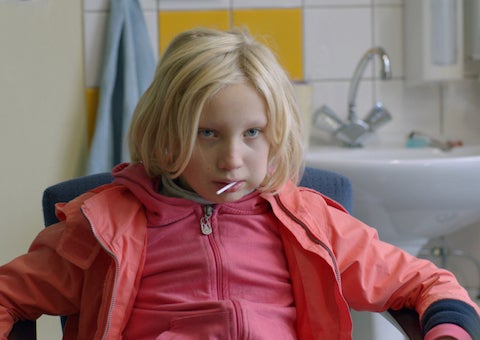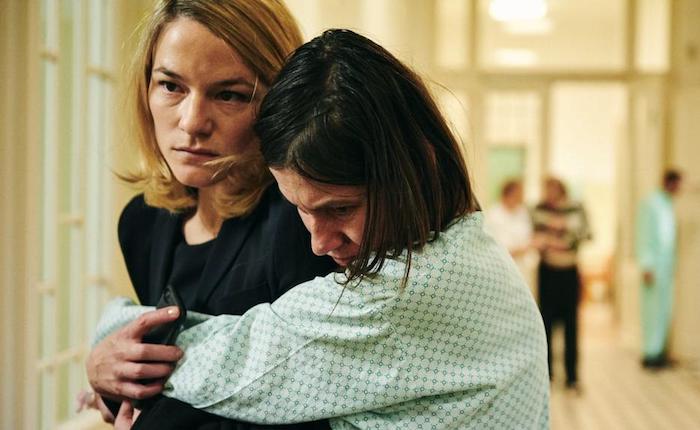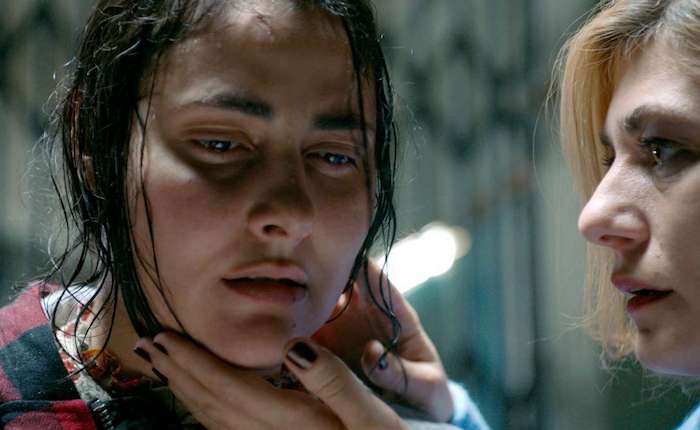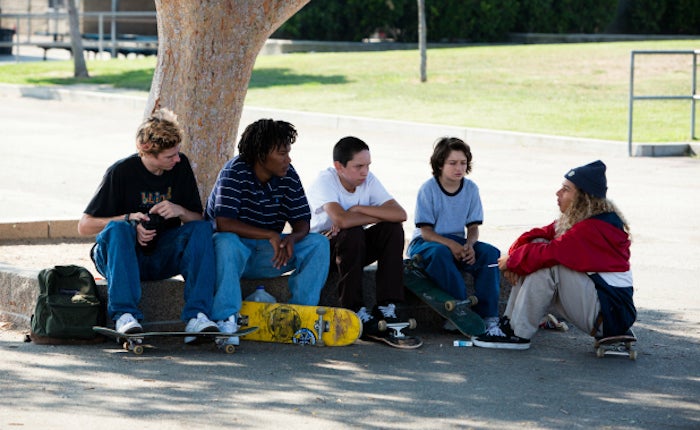
System Crasher (2019)
Founded in 1951, after the end of the Berlin airlift, the Berlin International Film Festival was seen as a way to highlight the city as an island of democracy behind the so-called Iron Curtain. By the end of the 1970s, the festival had grown to the second largest in the world after Cannes, and was moved from summer to February to compete directly with the French A-festival. What separates it from Cannes is that it is truly a festival for the public, rather than film professionals, and Berliners respond in kind, providing sell-out crowds to almost every show.
Given that the Berlinale now screens hundreds of films in 10-day period, making decisions about what to see becomes extremely difficult, unless you focus on one of the other programs, whether the Competition or the Retrospective, the Panorama or the Forum of Young Cinema, German Perspectives or Generation 14-Plus, Berlin Shorts or NATIVe (indigenous cinema). Given this impossible selection, I decided this year to attend films blindly, choosing them based on venue and screening times, rather than any research on filmmakers or films. As it turned out, of the 16 films I saw, eight were from the official competition, the rest from other programs. Fully half of the films I saw were directed by women.
The most impressive film I saw (and winner of the Alfred Bauer Prize) was System Crasher (Germany, 2019), directed by Nora Fingscheidt, about a nine-year-old foster child who, despite all the genuine efforts of the social welfare system, cannot cope with her mother’s inability to take care of her and becomes increasingly psychotic. Helena Zengel gives an amazing, heartbreaking performance as the girl, while the frustrations of the social workers are palatable. Maria Kreutzer’s The Ground Beneath My Feet (Austria, 2019) follows two sisters, one schizophrenic, the other a high-powered business consultant specializing in restructuring mordant companies. Commuting by air to northern Germany for her job, Lola is frustrated by male chauvinism in the workplace and her ability to cope adequately with her sister’s illness at home to the point she begins to doubt her own sanity. Her sexual relationship with her female boss, on the other hand, is the film’s non-event.

The Ground Beneath My Feet (2019)
In a much lighter vein and greeted with real enthusiasm by Berliners was Teona Strugar Mitevska’s comedy, God Exists, Her Name is Petrunya (Macedonia, 2019), about a pretty, slightly overweight young woman who jumps into an icy river on the Feast of Three Kings to retrieve a cross in an annual religious ceremony, while the TV cameras roll and male contestants stage a riot because of this “crime” against Church tradition. As she calmly defends her right to keep the cross, male hierarchies in Church, State and Media go ballistic, because she has in fact broken no laws, but only insists on her right to participate as an equal.
Disappointing, despite a stellar performance by Jonas Dassler, was Fatih Akin’s film about a serial killer of aging prostitutes in Hamburg in the 1970s. Almost too graphic for comfort, The Golden Glove portrays Fritz Honka as a physically repulsive, degenerate, misogynistic, sexual predator who fantasizes about bourgeois marriage, while beheading and quartering his victims, before burying them in the walls of his flat. Many wondered what possessed the Turkish-German director to take on this subject, which has misogyny issues of its own.
 God Exists, Her Name is Petrunya (2019)
God Exists, Her Name is Petrunya (2019)
Two other films dealt with historical and contemporary state corruption. Polish director Agnieszka Holland’s Mr. Jones (U.K./Poland/Ukraine, 2019) revisited the Stalin-created famine in the Ukraine of the 1930s from the point of view of the young British journalist who broke the story. The film also points to the culpability of New York Times journalist Walter Duranty, who won a Pulitzer in 1932 for his reporting on the Soviet Union, only to become a paid apologist for Stalin, stringently denying the famine in a series of articles. George Orwell’s encounter with Jones in the film is theorized to have inspired Animal Farm.
Although China pulled Zhang Yimou’s new film, One Second (2019), from competition at the last moment, the Panorama section presented Lou Ye’s The Shadow Play (China, 2018), about corruption at the highest levels of government and business in the construction industry in Guangzhou. Shot at night with a roving hand-held camera, this film noir’s hero is a young police detective who is trying to solve the murder of a city housing commissioner, leading to his suspension and ostracization for getting too close to the truth.

Mid90s (2018)
I also loved Jonah Hill’s Mid90s (U.S., 2018) in the Panorama program, a neo-realist observation of skateboarders in the San Fernando Valley in the 1990s, who dream of escape from their poverty-stricken environment, but also seem doomed to dead-end lives. Often abandoned by their families, they create their own family and that sense of belonging is apparently the only thing mitigating the tristesse of their existence. Hill’s first feature as a director is extremely self-assured. One can only hope that this powerful little film will find an audience after the Berlinale.
< Back to the Archival Spaces blog






 Mobile Navigation
Mobile Navigation

